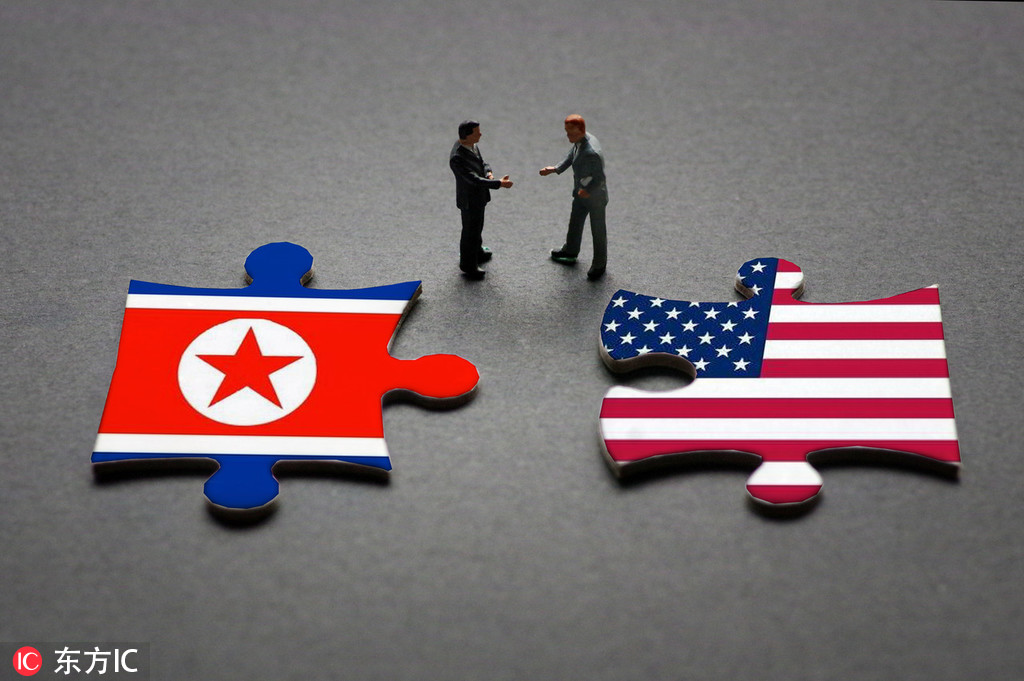Pragmatism required as well as creativity: China Daily editorial
chinadaily.com.cn | Updated: 2019-07-16 19:50

In an acknowledgment that the United States and the Democratic People's Republic of Korea have been talking at cross-purposes, US Secretary of State Mike Pompeo said on Monday that he hoped both sides could "be a little more creative" with what they bring to the table when the two sides restart talks aimed at denuclearization of the Korean Peninsula.
The US position hasn't changed, he said, it still wants full and final denuclearization of the DPRK in a way that it could verify.
But that in itself constitutes a change of approach from before — one that US President Donald Trump signaled when he met with DPRK top leader Kim Jung-un in the demilitarized zone — as it drops the previous demand the DPRK denuclearize before receiving anything in return.
Which suggests it's not really creativity that's required, but realistic expectations that can be translated into step-by-step moves.
Washington might want to bear in mind that the national legislature of the DPRK, the Supreme People's Assembly, amended the country's Constitution in April, re-ascertaining leader Kim Jong-un's status as a "representative of the state".
Since few doubted Kim's role as representative of his country, the constitutional amendment naturally attracted little interest.
But Pyongyang's belated revelation of the full text of its amended Constitution reveals something that does deserve Washington's attention.
Although it retains the DPRK's commitment to being a "nuclear state" — which confirms the assumption that the DPRK has been deeming itself as a legitimate nuclear power in its talks with the US — the most important change throughout the constitutional amendment is literally something that is absent in the present text.
The longstanding "Songun Policy", the core DPRK national strategy that prioritized the military in the affairs of state and allocation of resources, has been removed from the amended Constitution. This policy simultaneously resulted in the country's nuclear capabilities and its economic hardships.
Elaborating on the change, Kim stated in his speech at the April meeting that the DPRK's central task is to concentrate all the energies of the state on economic construction. And the amended Constitution includes new phrases such as "socialist corporate responsibility management system" and "revolutionary business practices". Terms reminiscent of those in the early stage of China's reform and opening-up.
This is a further sign that the DPRK wants to switch its focus. Which, once materialized, would bring tremendous changes to the regional, and global geopolitical landscape.
The international community should not only welcome and encourage Pyongyang to pursue such a new course, but also provide assistance toward this.
Yet that begins with the US, which needs to accept that the DPRK has its own demands and idea of what constitutes denuclearization of the Korean Peninsula, which includes removal of the US' nuclear umbrella from the peninsula.
If the two sides are to be creative in what they bring to the table, they are going to have to have a more clear-eyed view of what the other wants and break down the stages of how to deliver it. Not forgetting that other countries also have a stake in what is agreed.
























